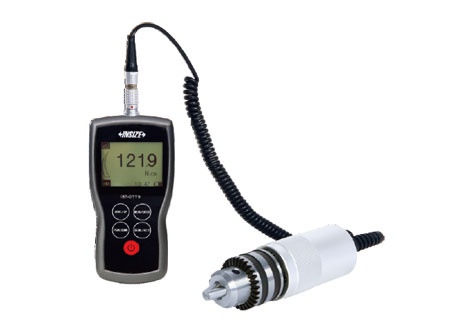In various manufacturing industries, ensuring product reliability and safety is paramount. Torque plays a critical role in many applications, from tightening fasteners to assembly processes. Torque testers are essential tools used to guarantee that products meet specific torque requirements. In this article, we'll delve into how torque testers contribute to product reliability and safety in manufacturing processes.
Understanding Torque Testing:
Torque testing involves measuring the amount of rotational force or torque required to tighten or loosen a fastener, such as screws, bolts, or caps. This process ensures that the correct amount of torque is applied to achieve proper fastening without under-tightening or over-tightening. Torque testers are precision instruments designed to measure torque accurately and reliably, providing manufacturers with essential data to assess product quality and consistency.
The Role of Torque Testers in Manufacturing:
Torque testers play a crucial role in manufacturing by verifying that products meet specific torque specifications and standards. By testing the torque applied to various components, manufacturers can identify potential issues such as loose fasteners, inadequate seals, or improper assembly. This helps prevent product defects, malfunctions, and safety hazards, ensuring that products perform as intended and meet regulatory requirements.
How Torque Testers Work:
Torque testers utilize various mechanisms to measure torque accurately. Some testers use strain gauges or load cells to detect the amount of force applied during tightening or loosening operations. Others employ rotary sensors or digital transducers to measure the angle of rotation and calculate torque based on the applied force and distance from the axis of rotation. Advanced torque testers may feature digital displays, data logging capabilities, and programmable settings for enhanced functionality and ease of use.
Ensuring Proper Fastening:
One of the primary functions of torque testers is to ensure proper fastening of components in manufacturing processes. Proper torque application is critical for maintaining product integrity, preventing leaks, and avoiding mechanical failures. Torque testers allow manufacturers to verify that fasteners are tightened to the correct torque specifications, reducing the risk of assembly errors and ensuring consistent product quality.
Preventing Over-Tightening and Under-Tightening:
Over-tightening and under-tightening of fasteners can lead to a range of issues, including damage to components, thread stripping, and compromising product performance. Torque testers help manufacturers avoid these problems by enabling precise control over the amount of torque applied during assembly. By setting torque limits and monitoring torque levels in real-time, manufacturers can prevent over-tightening and ensure that fasteners are tightened to the optimal level for each application.
Enhancing Product Reliability:
By incorporating torque testing into manufacturing processes, companies can enhance product reliability and longevity. Torque testers enable manufacturers to identify and address potential assembly issues before products reach the market, reducing the likelihood of costly recalls or warranty claims. Consistently applying the correct torque ensures that products function as intended, meet performance expectations, and deliver a positive user experience.
Ensuring Safety Compliance:
In industries where safety is paramount, such as automotive, aerospace, and medical device manufacturing, torque testers play a crucial role in ensuring compliance with safety standards and regulations. Proper torque application is essential for maintaining structural integrity, preventing component failure, and mitigating safety risks. Torque testers provide manufacturers with documentation and traceability of torque values, demonstrating adherence to industry standards and regulatory requirements.
Improving Efficiency and Productivity:
In addition to enhancing product reliability and safety, torque testers can improve manufacturing efficiency and productivity. By automating torque testing processes and providing real-time feedback, testers streamline assembly operations, reduce cycle times, and minimize rework. This enables manufacturers to produce high-quality products more efficiently, meet production quotas, and optimize resource utilization.
Final Thoughts:
In conclusion, torque testers are invaluable tools that play a crucial role in ensuring product reliability and safety in manufacturing. By accurately measuring torque during assembly processes, torque testers help manufacturers verify proper fastening, prevent over-tightening and under-tightening, enhance product reliability, ensure safety compliance, and improve efficiency. Investing in high-quality torque testers allows manufacturers to maintain consistent product quality, meet regulatory requirements, and safeguard the integrity and performance of their products.


No comments yet